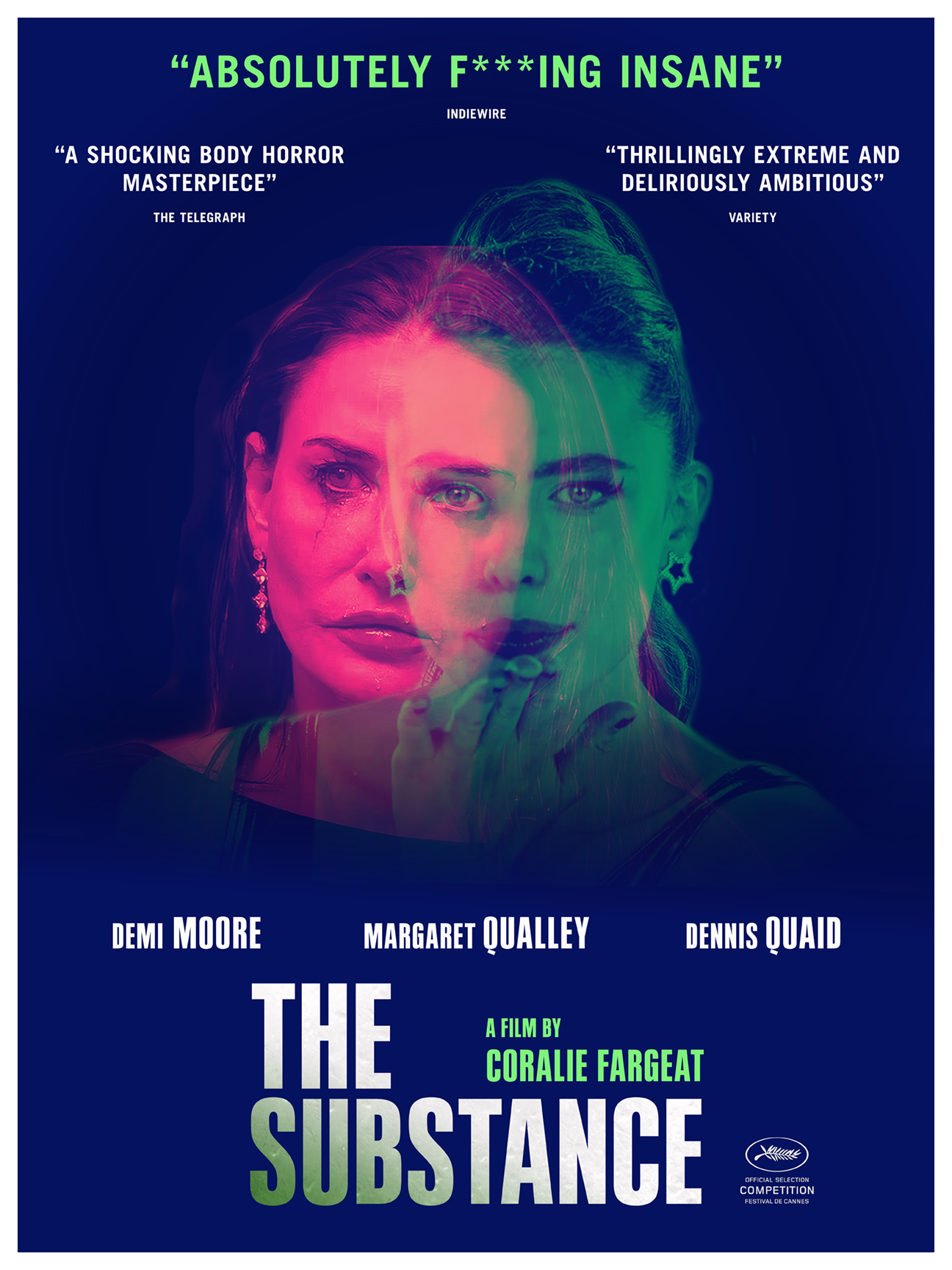
- In one of the most aspiring releases of 2024, the French director Coralie Fargeat pursues to create a highly stylized film narrating a Faustian tale with several references to contemporary mass media reality. The Substance can be watched as an homage to David Cronenberg's iconic body-horror movies such as The Fly and Videodrome or a dark satire, however, the story struggles to convey a creative subtext for the audience to interpret and resorts to pomposity and didacticism. Sometimes it feels like Fargeat, who is also the sole screenwriter, was more interested in delivering a banal feminist manifesto than stretching the boundaries of imagination like Cronenberg did back in the 1980s. Those who have a background in sociology and philosophy will take a trip down memory lane and dredge up Laura Mulvey's theory about the omnipotence of "male gaze" in American cinema that shaped a voyeuristic perception of women actors, meaning their derogation in mere images to be looked at by the ravenous masculine eyes. - 2. Demi Moore, who traverses her sixth decade on earth, is so strikingly sexy that many of you will no wonder reminisce about her 1990s roles that rendered her a household name in Hollywood. Nevertheless, the character she incarnates, Elizabeth Sparkle, is thrown into the story without Fargeat providing any solid material background. The only thing we learn is that she is an aging actress and current TV show host who is well past her prime. She is feeling desperate as she considers herself nothing more than a has-been while her anxiety and self-doubt skyrocket when the network boss (Dennis Quaid in one of his most memorable career performances) tells her that he wants to fire her for no other reason than being older, a repellent attribute for a woman who stands in front of a camera for a living. Desperate and desolate, Elizabeth embarks on a precarious adventure when she finds that her innermost wishes can be realized through an experimental miracle drug called "The Substance". And so the carnival of gore begins. 3, The drug divides Elizabeth into two distinct people, the one being her current self and the other a young, Lolita-like girl Margarete Qualley )who embodies all that the protagonist has lost. Immaculate skin, a curvy body, a voluptuousness that is bound to dazzle every man in the universe. But there is a fair warning issued by the obscure creators of the medication: "Never forget that you are one person, not two". When Elizabeth, urged by her craving for another life, decides to ignore that fundamental rule, all hell breaks loose. 4. Even though the movie is relatively long (140 minutes), the first half unravels in a frenetic tempo, further boosted by the great electronic soundtrack and the incessant drum of techno/trance beats, while in the second the story gears up, getting more and more disturbing and bizarre. The team responsible for the make-up and special effects deserve a top-tier award for their stunning job which remains the film's most coveted quality if we leave the lead performances aside. Moore is captivating in all her terror and incomprehension of what is happening to her and Margarete Qualley is convincing in her rendition of Sue's character (Elizabeth's second self or alter ego). 5.The main problem with The Substance is that everything is too obvious: the direct references to the classical works by Goethe and Wilde, the loud feminist proclamations, the instantly discernible hints to the metaphoric readings of certain objects and concepts such as mirrors and images. It's like the director neglected the substance of her story, opting for a -gorgeous- visual crescendo that sadly leaves the audience feeling empty after its dubious finale. I think it would be more beneficial for the movie to be entrenched in the more sheltered grounds of original screenwriting that furnish creators with innovative insights into the modern world and propel them to feel that otherworldly sense of inspiration that lurks behind all great works of art.
Join the Discussion
0 Comments